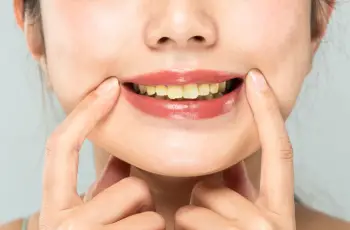
Can Chemical Peels Be Used on Lips?
Just as the skin on our faces takes a beating on a daily basis, so do our lips. UV radiation, cold, dehydration, and other damage caused by improper or lack of care.
Lip peels are a very popular lip care product, but as chemical peels become more and more a part of almost everyone’s skin care routine, sooner or later we’ll be asked if you can use chemical peels on your lips. We did some research and thought we could give you some answers.
Can I Use AHA BHA on My Lips?
The skin on your lips is made up of only 3 to 5 cells, which is very thin compared to the usual 20 cell layer on the rest of your face. So, this means that not all fruit acids are suitable for exfoliating your lips because they are too powerful. However, there are a few popular AHAs that work wonders, namely:
Lactic Acid Lactic acid is the safest to use on your lips because it has a larger molecular size, so it won’t penetrate too deeply into the skin and cause irritation or other damage.
You will also find that lactic acid is hygroscopic, meaning it attracts moisture from the environment, helping to keep the skin on your lips soft and hydrated. If you have issues with lip pigmentation, using lactic acid
can also help and you will notice a reduction in pigmentation in that area.
Mandelic acid.
While mandelic acid is not as gentle as lactic acid, it works best when it comes to pigmentation. The downside to this acid is that you may notice a little flaking on your lips, but luckily this is very manageable.
Glycolic acid.
This acid is very potent and works best. However, you must be especially careful when using glycolic acid because it has the smallest molecules and therefore penetrates the deepest into the skin. If you have glycolic acid
If you want to use it in a lip balm, it is best to seek advice from a trained professional to ensure that the acidity is not too strong for your lips.
Salicylic acid.
Salicylic acid is the most commonly used BHA and unlike the other AHAs mentioned, this acid is oil soluble and has a smaller molecule size. This means it penetrates deeper into the skin, which can cause unwanted irritation,
especially since the skin on our lips is much thinner than on the rest of our face. Many experts recommend not using salicylic acid to exfoliate your lips, but instead using other acids.
What can I use to exfoliate my lips?
There are a variety of ways to exfoliate your lips. The most popular are the following: Make a homemade lip exfoliator. Use a humidifier to increase humidity. Wipe away any flakes with a damp cloth. Use a clean, old toothbrush to exfoliate your lips. Use a store-bought lip scrub. Use a chemical exfoliant specifically designed for lip exfoliation.
Each of these options will leave you with smoother, more moisturized lips. However, studies in recent years have shown that some popular lip scrubs are too harsh for sensitive lip skin and should be used with caution. Here are some
tips for keeping your lips healthy after exfoliating.
Remember to be gentle. The skin on your lips is sensitive, so it can get damaged easily. It’s always a good idea to be as gentle as possible with any form of lip exfoliation. If you have sensitive lips, try a home lip scrub recipe that contains sugar, honey, and coconut oil. These particles are gentler on the skin and won’t cause skin irritation or damage.
Protect your lips. The skin on our lips is subject to the same damage as our face, as sun exposure is one of the main causes of lip pigmentation. When you go out, protect your lips with a moisturizing lip balm with SPF.
Don’t exfoliate too much. Excessive lip exfoliation can have a negative impact on the health and overall appearance of your lips. Exfoliating once a week is enough to keep your skin soft.
Don’t forget to hydrate well. Similar to how you moisturize your face after exfoliating, it’s important to do the same with your lips. After exfoliating, apply a nourishing balm to protect the skin. You can also try using a lip mask or lip oil at night so that you wake up with soft lips in the morning.
Does the skin on your lips peel on its own?
Lips are made up of mucous membranes, which are a special type of skin that is very different from the skin on the rest of your body. It’s finer and thinner, with no dead skin cell accumulation. This also means that
lips will not fall off on their own, but may become damaged, such as dryness and cracking. You can use lip products for small amounts of care and perform gentle exfoliation once or twice a week. Avoid using too much, as this may cause damage.
How often should I exfoliate my lips?
This depends on the product you use and the pressure you apply. For example, if you want to gently exfoliate your lips with a natural homemade scrub, you can apply the product to your lips for about 5-10 minutes. If you apply more pressure, about 1 minute is a reasonable time.
Avoid scrubbing too hard, as this can cause pain, cracking and damage to your lips. If you are worried about being too stubborn, a lip scrub or similar product is a better choice. Follow the instructions on the packaging and
Let the alpha hydroxy acid work its magic.
Can I exfoliate my lips?
In recent years, lip scrubs and exfoliating oils have become increasingly popular. This is mainly because these products are gentle on the skin and are very effective in removing scales, dry patches and rough texture from the lips. However
Every lip exfoliator is different and you should always make sure you are using the product correctly. Also remember not to use lip scrubs on chapped or cracked and cut lips as this can cause severe damage
May cause damage, burning and irritation.
Can I use lip scrubs every day?
To get the best results from a lip scrub, use it once or twice a week, depending on how dry and flaky your lips are. Exfoliating your lips every day can lead to significant skin damage. Cracks, micro-tears and even hyperpigmentation are common
as a result of excessive lip peeling. To get faster results and keep your lips looking healthier, use a lip balm or lip mask overnight 2-3 times a week to moisturize your lips.


